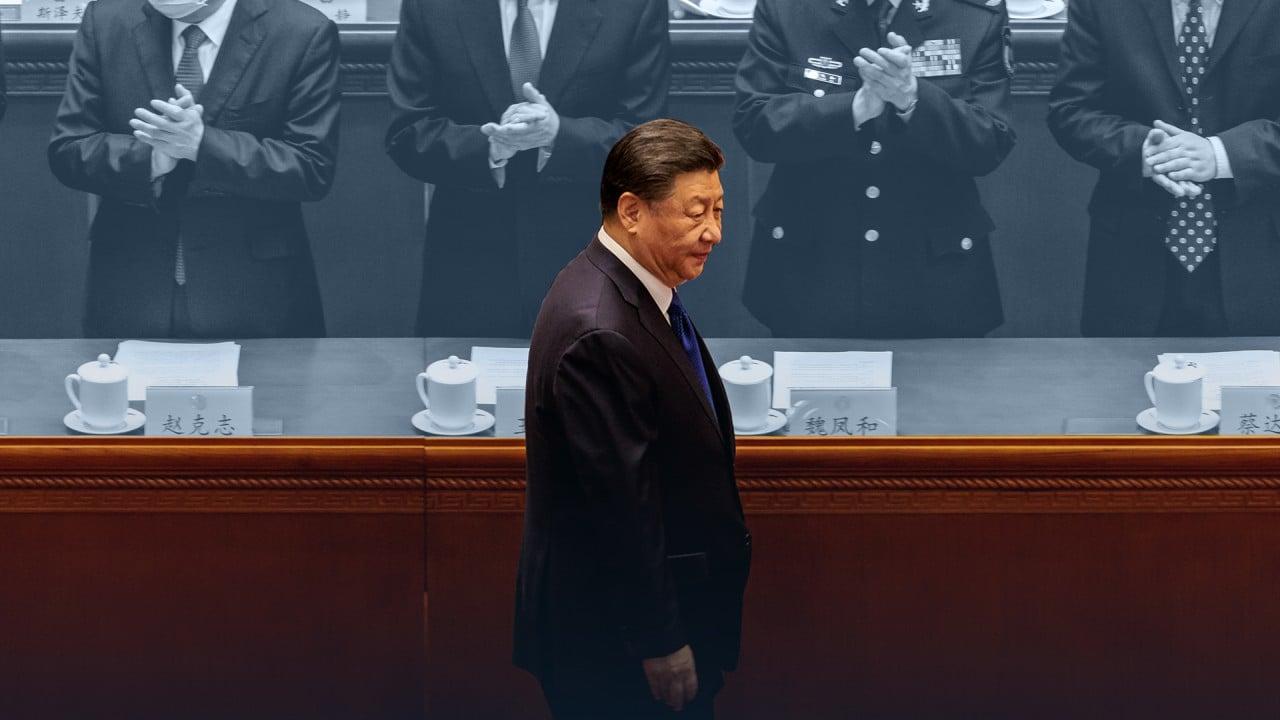
Hong Kong will also see its top leadership in both bodies changed this year after an earlier reshuffle.
Apart from Tam’s departure, the city’s first post-handover leader, Tung Chee-hwa, 85, also stepped down as a vice-chairman of the CPPCC, the country’s top political advisory body.
The meetings would be the first after Beijing imposed electoral changes and the national security law on Hong Kong.
Sources told the Post earlier that the ministerial-level Hong Kong and Macau Affairs Office (HKMAO) would be elevated to a unit answering to the leadership body of the Chinese Communist Party, a move seen as a strengthening of the party’s oversight role.
The meetings will also feature a once-in-five-year shuffle of members of the decision-making Politburo and provincial delegates on the two bodies. Despite the lifting of Covid-19 curbs, those attending the sessions are in a closed loop, with their movements limited to meeting venues.
The NPC Standing Committee has a long tradition of picking a veteran Hong Kong politician as the city’s representative on the body.
Henry Fok Ying-tung, was 64 when appointed, Tsang Hin-chi was 60, and former Legislative Council president Rita Fan Hsu Lai-tai, was 62.
Tam took up the post aged 68.
Lee, a lawmaker and accountant, is a newcomer to the NPC, the national legislature, after five years on the CPPCC.
Ng, a trade unionist, has served as an NPC deputy for 10 years and was elected as a legislator in Hong Kong in 2021.
If either is picked from the 36 city deputies towards the end of meetings and endorsed by mainland Chinese delegates, they will be the youngest Hong Kong representative sitting on the body.
Both politicians kept a diplomatic silence and declined to comment on their chances.
Lee said Beijing would “make a decision after holistic considerations”.
Ng said: “The role is a great honour. I will commit myself to whatever position I am in.”
Tam said that whoever filled his shoes would be expected to focus on helping the mainland economy get out of the doldrums after the end of the country’s three-year zero-Covid policy.
“Once post-Covid economic goals are spelled out during the sessions, [he or she] should consolidate Hong Kong’s strengths to integrate into national development,” he told the Post.
Observers said the tests for Hong Kong’s line-up in both bodies, characterised as younger and having more public office holders after a reshuffle last year, were whether they could play a “constructive role” to help with governance as part of the institutional reforms of the ruling party and the government to be unveiled.
“They are now increasingly regarded as a core component of the governing bloc,” said Professor Lau Siu-kai, a consultant for the semi-official Chinese Association of Hong Kong Macau Studies think tank.
“Beijing would expect them to make meaningful collaborations with the administrative branch and other local patriotic groups, with a goal of further consolidating the party’s leadership.”
The average age of the 36-strong local NPC delegation is 56, lower than that in the previous two terms.
Iris Wong Ping-fan, 40, from the DAB, was elected as the second youngest among the local NPC delegates. She said a youthful line-up could enhance the national legislature’s representation, as more than one-third of China’s population was aged between 15 and 44 in 2021.
“This cohort is an important engine of domestic consumption growth. I feel obliged to understand and reflect their needs,” she said.
More third-generation tycoons were also appointed to the CPPCC, including Adrian Cheng Chi-kong, 43, a member of the family that controls property giant New World Development, and Pansy Ho Chiu-king, 60, daughter of the late “King of Gambling” Stanley Ho Hung-sun.
Political commentator Professor Sonny Lo Siu-hing said under Hong Kong’s “patriots-only” policy, Beijing would expect delegates to deliver more than their predecessors to “fill the void” after the electoral revamp.
He said delegates should set up platforms to gauge views from the public on policies on cross-border affairs.
“They should better serve as a bridge between Hong Kong and the central government while offering constructive criticism,” Lo said.
“The roles can go hand in hand … It’s all about articulating the interests of Hong Kong and reflecting the views skilfully.”

